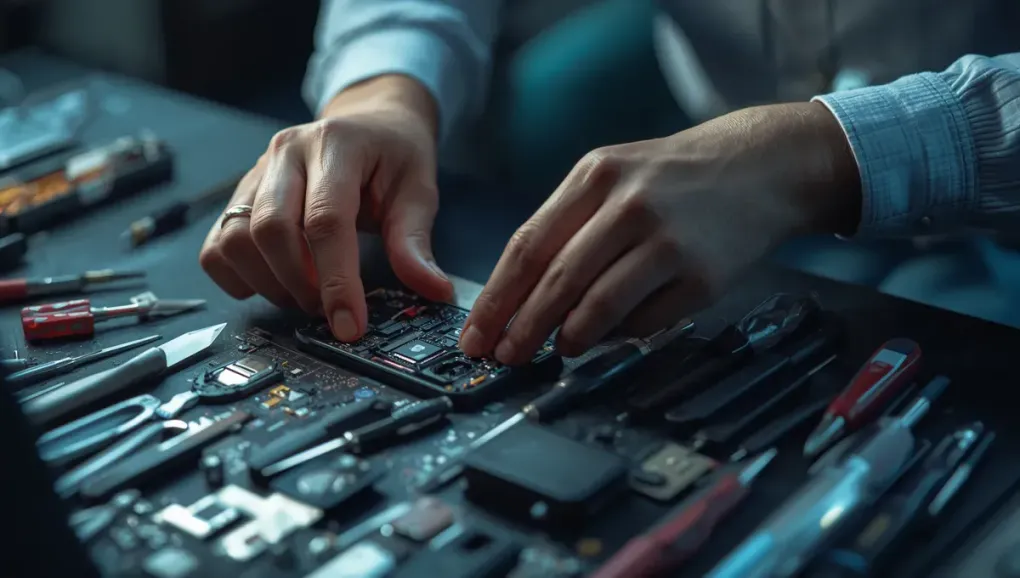
Your Owner, Not Your Master: The Ethical Battle for the Right to Repair
Let’s be honest: the feeling of buying a new electronic device is great. The box, the new smell, the promise of cutting-edge technology. But that feeling doesn’t last long. Soon you discover that, despite having paid a small fortune for the device, you don’t really own it. You are a mere licensee, a user with limited permissions. And when something goes wrong, you are forced to go back on your knees to the manufacturer, begging for a repair that costs an arm and a leg.
The Illusion of Ownership
This is the grim reality of consumer technology in 2025. Giants like Apple, Samsung, and even tractor manufacturers like John Deere have created closed ecosystems where independent repair is practically a crime. They use proprietary screws, glued parts, and, most nefarious of all, “parts pairing” – a software lock that prevents replacement parts from working without the manufacturer’s blessing. It’s a deliberate strategy to kill the independent repair market and force you to buy a new device or pay for their overpriced services.
Excuses vs. Control: The Manufacturer’s Playbook
The official excuse is always the same: “consumer safety” and “intellectual property protection.” What a joke. The real reason is control. Control over the product lifecycle, control over the aftermarket, and ultimately, control over you, the consumer. They want you to believe you are incompetent to fix what is yours. They want you to accept planned obsolescence as a fact of life.
The Rise of the Right to Repair Movement
But a rebellion is growing. The Right to Repair movement is gaining momentum worldwide. Laws are being passed in places like New York, California, and Oregon, in the USA, forcing manufacturers to provide repair manuals, tools, and replacement parts at fair prices. It’s a battle for autonomy, for sustainability, and for economic justice.
More Than Just Repair: Autonomy and Sustainability
The ethical argument is simple: if you bought it, it’s yours. You should have the right to open it, fix it, modify it, and learn from it. Denying this right is not only uneconomical, it’s undemocratic. It’s an affront to our curiosity and our ability to solve problems.
Furthermore, there’s the environmental disaster. Electronic waste is one of the fastest-growing waste streams in the world. Extending the lifespan of our devices through repair is one of the most effective ways to combat this problem. Planned obsolescence is not just bad business; it’s an environmental crime.
Demand to Be the Master of Your Own Device
The fight for the right to repair is a fight against monopoly and waste. It’s a declaration that we are not just passive consumers, but active owners. The next time your smartphone or laptop breaks, don’t run to the manufacturer’s store. Look for an independent repair shop. Support Right to Repair legislation. Refuse to be a mere user. Demand to be the master of your own device.


